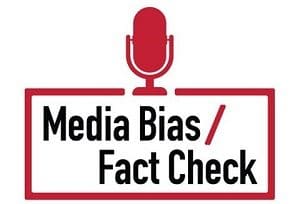RIGHT BIAS
These media sources are moderately to strongly biased toward conservative causes through story selection and/or political affiliation. They may utilize strong loaded words (wording that attempts to influence an audience by appealing to emotion or stereotypes), publish misleading reports, and omit information that may damage conservative causes. Some sources in this category may be untrustworthy. See all Right Bias sources.
- Overall, the Free Speech Union is right-biased based on advocacy and editorial positions that align with a conservative perspective. We also rate them Mixed for factual reporting due to poor sourcing techniques and one-sided reporting that excludes opposing viewpoints.
Detailed Report
Bias Rating: RIGHT
Factual Reporting: MIXED
Country: United Kingdom
MBFC Country Freedom Rating: MOSTLY FREE
Media Type: Organization/Foundation
Traffic/Popularity: Minimal Traffic
MBFC Credibility Rating: MEDIUM CREDIBILITY
History
The Free Speech Union (FSU) is an advocacy organization based in the United Kingdom, established in February 2020. It positions itself as a collective body that advocates for the speech rights of its members across various platforms. Toby Young founded the Free Speech Union and serves as its Director. He is also an associate editor at The Spectator (UK) and editor-in-chief of the Daily Sceptic.
Read our profile on the UK government’s influence on media.
Funded by / Ownership
The Free Speech Union (FSU) operates on a membership fee model supplemented by donations. It is registered as a company limited by guarantee in the UK. The governance of the FSU is overseen by a Board of Directors, with additional input from a Legal Advisory Council and a PR/Media Advisory Council. Source.
Analysis / Bias
The Free Speech Union’s FAQ section covers topics like workplace pronoun use, police record issues, human rights law, social media’s role in work, and critiques of anti-racism training.
Our review of the “Anti-Racism and Unconscious Bias Training” subsection reveals skepticism towards programs like Implicit Association Testing (IAT) and Unconscious Bias Training (UBT), framing them as based on “dubious theories” like Critical Race Theory and imposing “collective guilt” on certain demographics. The section implies that support for movements like Black Lives Matter may be coerced by employers or peers, and it questions the effectiveness of diversity training.
In support of its claims, FSU cites a briefing paper by journalist Carrie Clark, which includes endnotes, citing sources from opinion pieces and discussions rather than direct links to corroborating peer-reviewed research, some of these, such as the links to Quartz and OSF, are broken, which hinders verification of the cited material. Other sources include articles from The Cut and The Conversation. The lack of accessible details on Carrie Clark’s academic credentials or her standing in the scientific community makes it difficult to ascertain the reliability of her research, which is significant given its use by the Free Speech Union to substantiate their positions. This approach, with its reliance on a narrow range of sources, reflects the FSU’s critical perspective on mainstream anti-racism training and the application of Critical Race Theory in workplace settings.
The article titled “Write to your MP to raise free speech concerns about Government’s plans to publish a bill banning conversion therapy” employs minimally loaded language, emphasizing the importance of free speech without being overly sensational. The body of the article presents a one-sided view against the proposed conversion therapy ban, using emotionally loaded language to argue that the ban could infringe on free speech and parental rights. It includes citations to support its claims, although the sources are used to support a specific narrative. The sources cited are The Times UK and Daily Telegraph (UK). The tone and choice of language suggest a bias against the ban and in favor of the organization’s stance on free speech and against what they perceive as “woke” activism.
In general, FSU promotes that they are engaged in a “Culture War” and rejects “Woke” ideology, indicating a conservative right bias.
Failed Fact Checks
- None by a third-party fact checker; however, FSU and Tobey Young had their accounts closed by PayPal for the promotion of misinformation related to COVID-19. The ban was reversed a few days later.
Overall, the Free Speech Union is right-biased based on advocacy and editorial positions that align with a conservative perspective. We also rate them Mixed for factual reporting due to poor sourcing techniques and one-sided reporting that excludes opposing viewpoints. (M. Huitsing 11/08/2023)
Source: https://freespeechunion.org/
Last Updated on April 5, 2024 by Media Bias Fact Check
Do you appreciate our work? Please consider one of the following ways to sustain us.
or
Left vs. Right Bias: How we rate the bias of media sources


